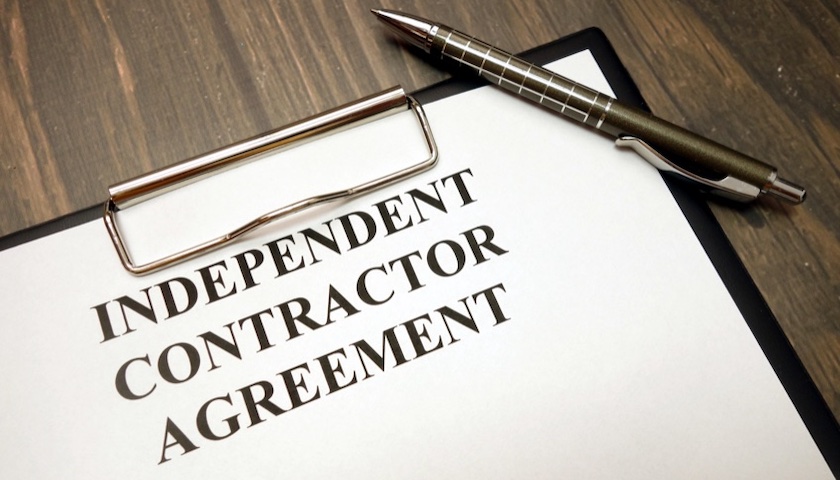Back in the September 2022 Mini Budget, then Chancellor Kwazi Kwarteng surprised many by announcing that he planned to scrap IR35 reform.
IR35 was first introduced in 2000. Back then, the government believed that many contractors were using personal service companies to reduce their tax bills, despite working under the same conditions as employees. New legislation introduced certain tests to determine whether someone was in fact a genuine contractor or a ‘disguised’ employee. If a contractor is deemed to be inside IR35, the HMRC sees them as being an employee for tax purposes. You can read more about the IR35 rules here.
Responsibility for determining IR35 status
Until 2017, responsibility for determining IR35 status lay with the individual contractor. However, from that point the IR35 status of public sector contractors was determined by the hiring organisation. From 2021, a similar reform was applied to the private sector. After this point, any large or medium company (or voluntary organisation) became responsible for determining contractors’ IR35 status.
IR35 reform problems
The IR35 reforms were beset with problems from the outset. A recent report by the House of Commons Public Accounts Committee was scathing in its findings. In particular, the committee found that the rules were opaque and hard to understand. Indeed, government bodies who one would think “should be best placed to understand the rules” ended up owing HMRC £263m for non-compliance.
In other words, because public sector organisations didn’t understand the rules, they ended up paying taxpayer-funded fines to another public sector organisation!
Businesses play it safe
Another problem with the IR35 reforms was that there was no independent appeals process. This meant that contractors found it almost impossible to appeal an IR35 status that was wrongly determined by their client. At the same time, many contracting businesses and organisations played it safe, wrongly putting contractors within IR35 in an attempt to avoid fines and penalties.
What has happened with IR35?
From April 2023, contractors are now responsible for determining their own IR35 status.
Is the scrapped IR35 reform good news for contractors?
On the whole, yes. The scrapping of IR35 reforms is good news for contractors. It should reduce mistakes and cut the risk of wrongly being put inside IR35. This will allow genuine contractors to take advantage of the tax breaks available by working outside IR35.
I need help with IR35. What can I do?
If you are a THP client and you are unsure whether you fall inside IR35, please talk to your account manager. They will able to help you make sure you make the correct IR35 declaration. Also, given that HMRC may well ramp up IR35 investigations, we strongly recommend our Tax Investigation Fee Protection Service. This can cover you for up to £100,000 of accountancy fees should the taxman come knocking – and give you peace of mind that you have tax professionals on your side.
About Karen Jones
Having worked for one of the world’s largest accountancy firms, Karen Jones uses her tax knowledge and skills to help clients obtain substantial reductions to their tax liabilities.
With an expanding portfolio of tax clients, Karen enjoys the variety her work brings her and particularly likes working with new businesses and people. With a growing number of tax clients, she frequently faces a variety of challenges and relishes the experience she gains as she solves them.
Karen likes the THP ethos: “I like the way the team has a professional, but friendly and down-to-earth approach – it creates a productive atmosphere that benefits everyone.”
Karen’s specialist skills:
- Personal Taxation
- Tax Efficient Planning
- Trust Administration












